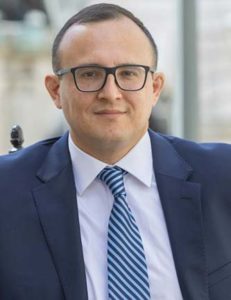Faculty and staff of Lehigh’s College of Health are weighing in on what’s on everybody’s mind nowadays: the long-term implications of COVID-19 on the U.S. and world.

Whitney Witt
While everyone will be affected in different ways, COVID-19 will disproportionately affect low-income populations, minorities and people living in areas where social distancing is near impossible, said Whitney Witt, inaugural dean of the College of Health. The college is mainly focusing on public health through a population health lens.
“What we don’t know are the downstream effects of how this pandemic is going to affect people in terms of social factors, economic factors and living conditions,” Witt said.
Strategies to minimize the effects of the virus have been implemented, but the long term impact the virus will have on the world is unforeseen.

Fathima Wakeel
“I feel like COVID-19 will widen all of the health disparities that already exist,” said Fathima Wakeel, an associate professor in the College of Health. “Disparities in health, education or socioeconomic status — all of these things will become more exacerbated.”
On a global scale, many underdeveloped countries lack the means and resources to mitigate the spread of the virus.
Witt believes areas of the world with limited health care resources are more likely to see a greater impact in terms of infection and number of deaths.
On campus, the Lehigh community is coming together to show support and strength amidst the pandemic, Witt said. All levels from senior leadership to staff members have come together under a spirit of unification to power through the pandemic, she said.
Frequent Zoom meetings have acted as a support system for many in the College of Health, as they are able to check in on each other, Wakeel said.

Eduardo Gomez
The faculty of the College of Health are currently conducting research on the virus and speaking out about the impact that it will bear on both the U.S. and the world at large, said Eduardo Gomez, an associate professor at the College of Health.
“We still remain committed to our work and are also doing research on the topic,” Gomez said. “We’re working from a distance like other colleges and continue to collaborate on a daily basis.”
Gomez, Wakeel and Witt agreed that widespread testing, physical distancing and adequate resources for health care providers to give patients treatment should be the focus areas to mitigate the impact of the virus.
Research should prioritize building equipment and technologies for testing and equipment to show the importance of social distancing and to increase awareness about the virus, Gomez said.
“As a society, we have to be ready to help flatten the curve, and those three priority areas will help tremendously in flattening the curve,” Witt said.






Comment policy
Comments posted to The Brown and White website are reviewed by a moderator before being approved. Incendiary speech or harassing language, including comments targeted at individuals, may be deemed unacceptable and not published. Spam and other soliciting will also be declined.
The Brown and White also reserves the right to not publish entirely anonymous comments.
1 Comment
The effort needs to be focused on treatment options first & foremost because you cannot test everyone every day. Finding a treatment regimen to mitigate the effects is first & foremost priority.